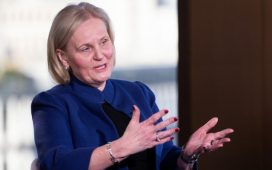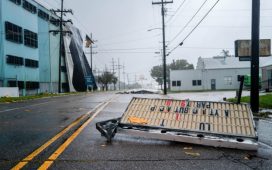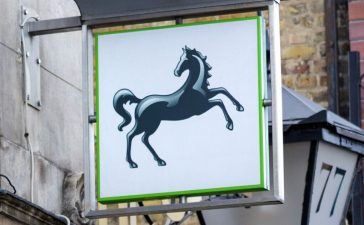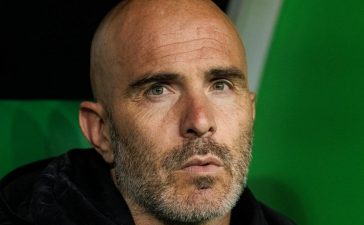This article is an on-site version of our Moral Money newsletter. Sign up here to get the newsletter sent straight to your inbox.
Visit our Moral Money hub for all the latest ESG news, opinion and analysis from around the FT
A significant number of funds have recently shed their Article 9 status — the EU’s designation for investment vehicles with the most robust green attributes. But Goldman Sachs appears to be bucking the trend.
Goldman said yesterday that it closed a $1.6bn private equity fund with the Article 9 badge. Goldman’s new fund will invest in everything from agriculture to waste and materials solutions. The announcement is notable considering that asset managers such as BlackRock and Invesco have downgraded some of their funds to the less demanding Article 8 category, blaming regulatory confusion around the EU’s Sustainable Finance Disclosure Regulation.
In today’s newsletter, we stay in the EU with two pieces centred on German companies, striking very different tones.
After years of poor performance at Bayer, activist investor Jeff Ubben sees an opportunity for the German conglomerate to earn more from its crop sciences division as the world focuses on the need for food security. Smarter farming is essential and this human need plays well to Bayer’s strength. Ubben paints a hopeful picture.
Our second story today is more troubling. Munich Re told Simon that for the second year in a row, global insured losses from natural disasters had exceeded $100bn — a “new normal”. (Patrick Temple-West)
Bayer’s crop sciences business: a ‘jewel’ for sustainability investors, says Ubben

Activist investor Jeff Ubben launched an impact investing firm in 2020 to show the financial world that money could be made by combining sustainability with profits.
Two years later, Ubben found his biggest opportunity: Bayer, the German conglomerate that makes everything from aspirin to weedkillers. This week, his firm Inclusive Capital Partners revealed a more than €400mn stake in Bayer — and sought to shake things up by pushing for radical change at the top.
Ubben’s main interest is Bayer’s crop sciences business, in which he sees significant profit opportunities as the world advances precision agriculture and genetic editing. Climate change imposed stress on food security well before Russia invaded Ukraine to exacerbate the problem, he added.
“The crop science business is a jewel of a business,” Ubben said. Food security concerns will only intensify in the years ahead, and Bayer’s crop sciences business is well positioned to serve this market. “Businesses that solve these massive problems deserve high multiples,” he said.
As a separate company, Ubben reckons, Bayer’s crop sciences business could achieve valuation multiples similar to Corteva, which was Dow Chemical’s agriculture business before it was spun off. Now it sells seeds, herbicides and fertilisers. Corteva trades at a lofty 20 times earnings, and shares surged 30 per cent in 2022 as much of the stock market suffered declines.
To advance sustainability goals, investors need to pry open balance sheets at the biggest companies, Ubben said. Investing in start-ups sounds exciting, but investors should focus on where the money is: at the world’s largest companies. Bayer has about €120bn in assets. If Bayer’s crop sciences division were to trade on its own, he said, it could have a valuation similar to Corteva’s.
Ubben’s appetite for Bayer stock might seem questionable to some given the company’s continuing struggles with lawsuits over glyphosate, a weedkiller developed by Monsanto that has been linked to cancer. But US courts in 2022 have ruled in favour of Bayer in up to six recent cases, suggesting the litigation bonanza is running out of gas. Bayer has previously said it will phase out glyphosate in US retail products this year. And most big agriculture companies — including Corteva — sell glyphosate weedkillers.
Inclusive Capital says it wants to mobilise the private sector to create a more sustainable and trusted economic system. Its big bet at Bayer will be closely watched by other investors at the intersection of impact and activism, who may hope to replicate Ubben’s strategy at other companies. (Patrick Temple-West)
Taking stock of a brutally expensive year for natural disasters
Munich Re, the giant German reinsurance company, has just come out with its annual assessment of natural disaster losses in the past year. As you can probably guess, it makes for an ugly read.
Altogether, these losses came to $270bn, of which $120bn was covered by insurers. This is the second year in a row that global insured losses have hit the triple-digit billions, a once unthinkable level.
“To have insured losses above $100bn is the new normal,” Munich Re’s chief climate scientist Ernst Rauch told me. The fingerprints of global warming, he warned, were everywhere.
To a large extent, Rauch said, the worsening losses reflected the increasing incidence of the most powerful class of hurricanes in the north Atlantic, pummelling expensive (and, by global standards, very well insured) real estate on the US east coast. A case in point was last year’s Hurricane Ian, which smashed into Florida to cause insured losses of $60bn — one of the biggest single loss drivers in history.
The causes of insurers’ rising payouts go far beyond the US. Last year brought a brutal wave of flooding in Australia, with insured losses of $4.7bn. Freak hailstorms in France cost insurers another $5.6bn.

What made me do a grim double-take, however, was not one of the biggest insured loss figures — quite the opposite. It was a line in Munich Re’s report dealing with last year’s appalling flooding in Pakistan, which inundated a third of the country, killed more than 1,700 people, and displaced millions.
The Pakistan floods caused damage worth $15bn — a huge sum for that nation, and far higher than the total bill for any other disaster last year except Hurricane Ian. And the insured losses? Munich Re assessed them as “minor” — too low for the company to give a meaningful estimate.
This reflects a much wider problem: as people in developing nations fall victim to increasingly costly natural disasters, they are far less likely than counterparts in the rich world to have insurance coverage. Even middle-income nations exhibit this problem. In China, for example, flooding losses last year came to $5bn, yet only $300mn of that was covered by insurance.
At COP27, we covered the controversy around the Global Shield initiative, spearheaded by the German government, which aims to assist developing countries to access insurance to help cover the costs of disasters. Critics called this a distraction from efforts to set up a loss and damage facility, through which rich nations would fund disaster recovery.
But Rauch insisted that insurance access for developing nations had to be a central part of the answer, warning that it would take years before the international loss and damage facility was up and running.
Meanwhile, Munich Re has joined other insurance companies, government institutions and civil society groups in the Insurance Development Forum, a body aiming to extend access to insurance. The IDF has developed initiatives such as the Global Risk Modelling Alliance, which helps climate-vulnerable nations come up with risk-management systems.
To really move things forward, Rauch said, multilateral institutions such as the World Bank and UN bodies would need to help establish how this wider insurance access would be paid for.
“Insurers do have an interest, a risk appetite, as we call it, to also cover risk from flooding and other natural perils in countries like Pakistan. And natural catastrophe insurance makes a lot of sense from an economic development point of view,” he said. But, he warned, “we can’t do it alone, because someone by the end of the day has to pay the insurance premiums”. (Simon Mundy)
Smart reads
-
The European Central Bank has signalled a “paradigm shift” in its climate policy, according to analysts at the Anthropocene Fixed Income Institute. In a speech this week, ECB executive board member Isabel Schnabel said the bank should consider reshuffling its corporate bond holdings towards greener issuers even before bonds reach maturity.
-
Schnabel’s remarks contrasted with comments from US Federal Reserve chair Jay Powell. The Fed will not be a “climate policymaker”, he asserted yesterday.











